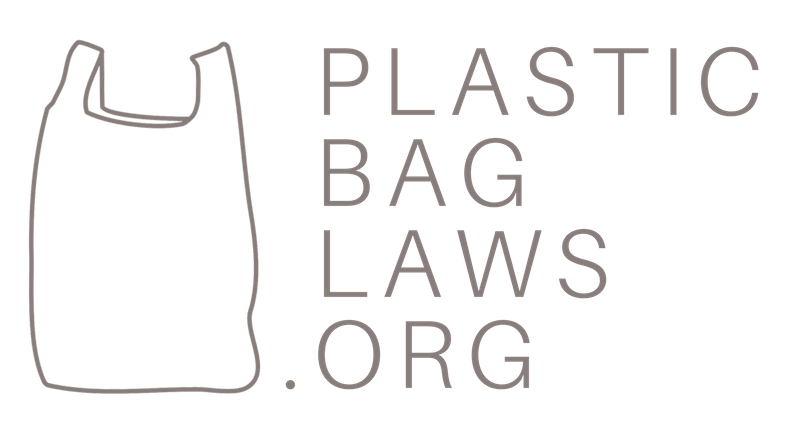Update: The efficacy of Washington, D.C.’s bag fee
By: Josh Kizler On January 1, 2010 the Anacostia River Clean Up and Protection Act went into effect in Washington, D.C., establishing a $.05 fee for each disposable bag taken by a consumer at checkout.[1] More than one year later, perspectives concerning the fee’s efficacy and economic impacts within D.C. are split. While D.C.’s government and several environmental groups support the fee and rely on verifiable data showing a dramatic reduction in the use of disposable bags to support their case, the fee's critics are more suspect in their claims and motivation. Leading the opposition is Washington-based Americans for Tax Reform (ATR), which created the Taxpayer Protection Pledge for legislators to never raise taxes in 1986 at the request of President Reagan.[2] Strictly on a matter of principal the group opposes the D.C. tax and all other taxes.[3] But the numbers reflecting the reduction in disposable bag use speak for themselves. The drop from 270 million bags used in 2009 to 55 million in 2010 cited by D.C. officials equates to an 80% reduction in bag use, translating to fewer production inputs, as well as less waste outputs, including trash and litter.[4]
The Alice Ferguson Foundation (AFF), a not-for-profit environmental organization which focuses its efforts on the Potomac River Watershed,[5] commissioned Annapolis-based research firm OpinionWorks to survey D.C. residents and business owners.[6] The firm’s surveys of 600 D.C. residents and 51 business owners found that since the fee was enacted, 75% of customers were using fewer bags while 78% of business owners experienced either zero or positive effect on their business.[7] Other positive results included less noticeable litter around stores and costs savings from not having to purchase as many bags.[8] Based on the AFF study, D.C.’s tax appears to work for both the environment and businesses.
Boston-based Suffolk University has also published a study, commissioned by ATR, with less optimistic outcomes about the economic impacts of the fee.[9] However, it is worthwhile to review ATR’s results with an eye for the potential ulterior motives in fishing for such results. The group’s study found that the tax will generate less revenue than projected, eliminate more than 100 jobs, and push consumer spending outside of D.C.’s borders.[10] However, according to the AFF study, an overwhelming majority of business owners felt that the fee had a zero or positive effect and any revenues produced by the fee benefit the District, so the actual revenues do not seem to match these projections. Furthermore, the specific jobs which would be eliminated are unclear, as is the connection between D.C’s tax and the lost jobs. Charles Allen, chief of staff for D.C. council member Tommy Wells and co-sponsor of the measure, argued the credibility of ATR’s report in that it negates the measure’s associated environmental benefits and positive economic impacts on small business.[11] Furthermore, he clarified that the measure enacts a fee which consumers can avoid, unlike a tax, which is unavoidable.[12]
Interestingly, ATR has also used many of the same non-economic arguments against single-use bag ordinances as the American Chemistry Council, including references to the reusable bag study funded by the ACC.[13][14] Regardless of its motivations, the group might satisfy some critics by providing more detailed information regarding the methodology and findings of its study.
[1]See Anacostia River Clean Up and Protection Act (bag fee) at http://www.dccouncil.us/images/00001/20090622091805.pdf
[2] See The Taxpayer Protection Pledge, The Center for Fiscal Accountability, at http://www.fiscalaccountability.org/taxpayer-protection-pledge
[3] See Americans for Tax Reform, under “About”, at http://www.atr.org/?content=about
[4] David Nakamura, District businesses not harmed by bag tax, The Washington Post, February 24, 2011, at http://www.washingtonpost.com/wp-dyn/content/article/2011/02/23/AR2011022306669.html
[5] See Alice Ferguson Foundation, under “AFF’s Mission”, at http://www.fergusonfoundation.org/mission.shtml
[6] Nakamura, supra.
[7] Id.
[8] Id.
[9] Josh Brown, Bag surcharge a detriment to D.C., study says, The Washington Times, February 10, 2011, at http://www.washingtontimes.com/news/2011/feb/10/bag-surcharge-a-detriment-to-dc-study-says/
[10] Id.
[11] See Bag surcharge a detriment to D.C., study says, The Washington Times, February 10, 2011, at http://www.washingtontimes.com/news/2011/feb/10/bag-surcharge-a-detriment-to-dc-study-says/
[12] Brown, supra.
[13] See Plastic industry-funded study finds that reusable bags should be washed more, at http://plasticbaglaws.org/plastic-industry-funded-study-finds-that-reusable-bags-shoud-be-washed-more/
[14] See Statement of Joshua Culling, State Affairs Manager, Americans for Tax Reform, at http://www.leg.state.or.us/committees/exhib2web/2011reg/SENR/02-08-2011meetingmaterials/sb536culling02-08-11.pdf
